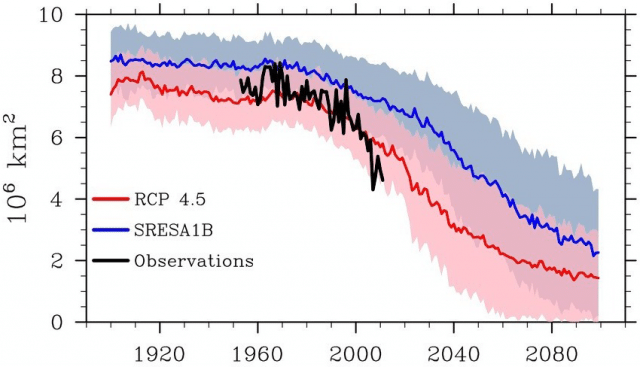As the extent of Arctic sea ice declines to levels unrecorded since satellite monitoring began, the National Snow and Ice Data Center has released a new analysis that shows the situation to be worse by far than even the most pessimistic models predicted.
It’s a perverse endorsement of one of the most popular denier memes – that you can’t rely on climate models because the world is too complicated to be reduced to a compilation of computer data. But, thanks to the expertise (and conservative nature) of the scientists behind this work, the models have shown the direction with perfect accuracy: it’s the terrifying extent that they have failed to anticipate.
In addition to the catastrophic conditions currently prevailing in the Arctic, the NSIDC has also drawn attention to the dramatic melting occurring this year in Greenland. And all this is supported and reinforced by the Polar Science Center’s ongoing calculation of Arctic ice volume.
The trends are all down. Or as James Hansen put it in the Washington Post last week, “Climate change is here – and it’s worse than we thought.”
Subscribe to our newsletter
Stay up to date with DeSmog news and alerts






